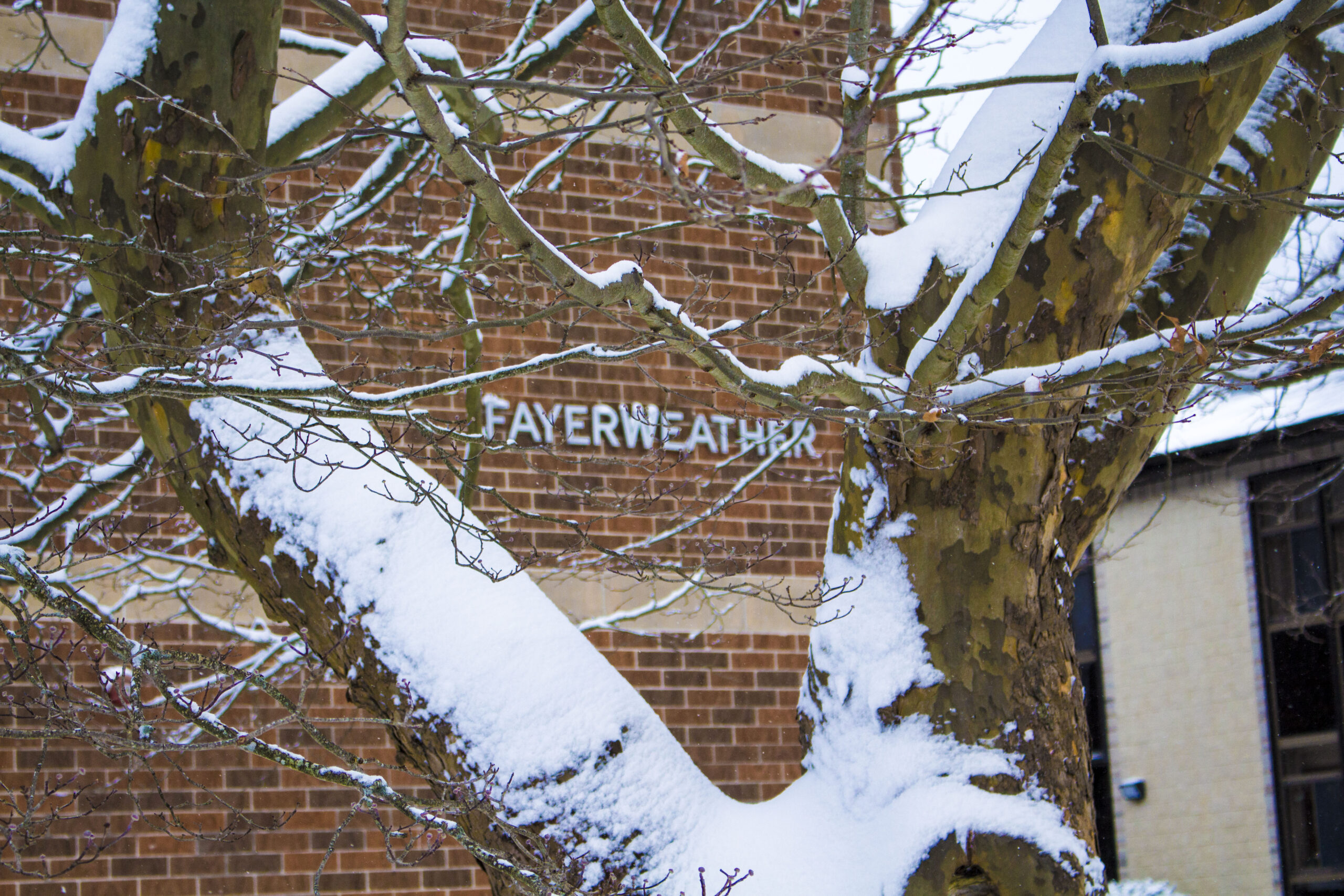Housing and Residential Life manages dorm life during pandemic
Due to the COVID-19 pandemic, URI is making changes to its housing policies and plans. Photo by James McIntosh.
The University of Rhode Island’s on-campus housing arrangements during COVID-19 have altered both annual budgets and plans, affecting the future of residential life.
URI’s Housing and Residential Life (HRL) began making changes to on-campus housing last spring when COVID-19 sent students home for the semester. Plans for the 2020-2021 academic year were implemented in advance as the University anticipated the need for health and safety protocols.
In the past, most freshmen dorm rooms were triples, while the majority of returning residents lived in doubles or suites. According to Frankie Minor, director of HRL, URI maintained a maximum capacity of 6,500 on-campus students before COVID-19, and nearly 79 percent of beds were filled at that time.
Threats of the virus forced URI to turn triples into doubles and doubles into single-occupancy dorms. Some freshmen were assigned to dorms that are usually reserved for upperclassmen, due to the limited space, in turn displacing many sophomores, juniors and seniors. As of January, URI’s maximum capacity was 4,589 students, and nearly 67 percent of these available spaces are currently occupied.
The drop in capacity reduced URI’s housing budget by nearly $8 million resultantly, according to Minor. This deficit, as well as expenses for quarantine spaces and other purchases related to the pandemic, has been a consistent challenge for the University.
Many students have also faced social challenges due to distancing restrictions. Access between buildings, which has allowed students access to other dorms in the past, has been prohibited due to COVID-19. There is also a limit to how many students can be in one dorm room at any given time, depending on which dorm you are living in.
Freshman David Nitschke said that the biggest challenge of living on campus has been meeting people and experiencing the social aspects of college.
“It’s hard that only one additional person is allowed in your dorm,” he said. “Kids go outside to meet each other, but that’s not easy with the weather. I’m hoping the vaccine will change things.”
He said that he is grateful to be able to live on campus at all considering current circumstances.
Minor admitted that these limitations have been difficult to overcome for students, but that he believes HRL has done its best to maintain URI’s sense of community.
“When you can only communicate through a mask, or in very isolated and restricted settings, it’s much harder,” he said. “Our RAs, RAMs, and hall directors are doing things in a socially responsible and safe manner.”
Nevertheless, residential life is far from normal for current students, and it continues to affect the campus community, Minor said. There has been an 18 percent drop in students living on campus since last semester, according to Minor and Dave Lavallee, the assistant director of URI Communications.
Minor and Lavallee attributed the decrease in on-campus students to the increase in online classes. Since students have the option to be entirely online, many have decided to stay home until COVID-19 restrictions are lifted.
According to Minor, students living in residence halls have had the lowest positivity rate of student groups at the University.
“That statistic is not by accident,” said Minor. “I think it’s by the way we approach our situations, such as our enhanced cleaning methods.”
He said that such cleaning methods include disinfecting public spaces three to four times each day, as well as through the hiring of increased custodial staff to accomplish this.
Minor hopes that off-campus students know there is still ample space for those who wish to live at URI this semester.
Minor and his HRL team are making decisions as swiftly as possible for next semester. Triples will no longer be employed at URI, even after the COVID-19 pandemic. HRL hopes to have more details on housing next year out to students by the end of February.
“We’re actively planning, trying to predict the future, and trying to guess what the pandemic situation will be,” he said. “We’ll get more information out soon.”

